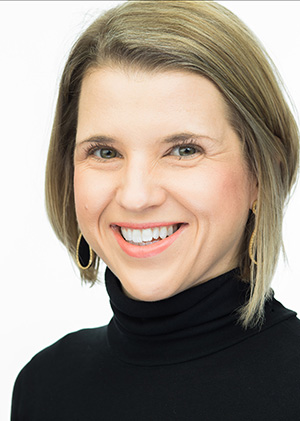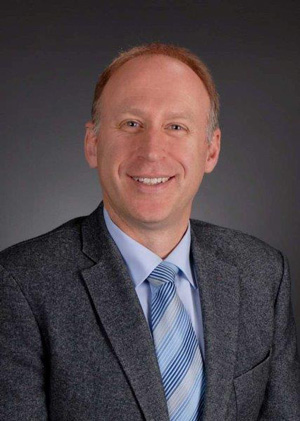Media contact: Savannah Koplon
The preterm birth rate in Alabama is the third highest in the nation, at 12 percent. For African-American women it’s much worse: 48 percent higher than for all other women in the state. The good news, according to two UAB studies, is that a simple intervention may have a major impact.
 “Pregnancy is a time when women are more willing to consider healthy changes. What a woman won’t do for herself, she’ll do for her baby." – Maria Geisinger, DDS, MSWhen a woman is pregnant, inflammation and the body’s reaction to infection rise, explains Maria Geisinger, DDS, MS, an associate professor in the UAB School of Dentistry Department of Periodontology. Studies have shown that the majority of pregnant women (up to 100 percent in some research) have gum disease. This gingival inflammation will increase early in pregnancy with gum bleeding a highly visible sign. Even worse, as several studies worldwide have found, gum disease may be linked to negative pregnancy outcomes, including preterm birth and low birth weight. (One theory is that the bacteria in a mother’s gums act as a reservoir from which microbes can colonize her baby. Infections also can lead to a rise in prostaglandin production, and prostaglandin levels are a signal to the body to begin labor.)
“Pregnancy is a time when women are more willing to consider healthy changes. What a woman won’t do for herself, she’ll do for her baby." – Maria Geisinger, DDS, MSWhen a woman is pregnant, inflammation and the body’s reaction to infection rise, explains Maria Geisinger, DDS, MS, an associate professor in the UAB School of Dentistry Department of Periodontology. Studies have shown that the majority of pregnant women (up to 100 percent in some research) have gum disease. This gingival inflammation will increase early in pregnancy with gum bleeding a highly visible sign. Even worse, as several studies worldwide have found, gum disease may be linked to negative pregnancy outcomes, including preterm birth and low birth weight. (One theory is that the bacteria in a mother’s gums act as a reservoir from which microbes can colonize her baby. Infections also can lead to a rise in prostaglandin production, and prostaglandin levels are a signal to the body to begin labor.)
Keeping teeth in top shape is still possible, Geisinger explains. But it takes work — both personal commitment and professional visits — and women with low incomes are particularly vulnerable.
Giving the knowledge – and the tools
Researchers at the UAB and University of Pennsylvania schools of dentistry wanted to know if oral hygiene education would make a difference. In their OHMOM study (Oral Health and Maternal Outcome Measures), the UAB team trained nurses in an ob/gyn clinic to show mothers how to brush, floss and care for their teeth, and explain why it mattered to them and their babies.
The randomized controlled trial studied two regimens — an intensive version, with automated toothbrush and more extensive instructions, and a simple method, with regular toothbrush. “Both turned out to be quite successful,” says Nicolaas Geurs, DDS, MS, Weatherford/Palcanis Endowed Professor and chair of the UAB Department of Periodontology, who was principal investigator for the OHMOM study. There was a particularly significant reduction in gum disease among the participants at UAB. “We found that it’s feasible to improve oral health during pregnancy if the patient knows they have to do this and are given the tools so they can learn to do it,” Geurs says.
 “We found that it’s feasible to improve oral health during pregnancy if the patient knows they have to do this and are given the tools so they can learn to do it." – Nicolaas Geurs, DDS, MSThe decision to offer education in an ob/gyn clinic, rather than a dentist’s office, was significant, Geurs points out. While Medicaid pays for pregnancy services, it does not cover any dental care for adults. “To access a dentist in Alabama, you have to have money or insurance,” he says. “This clinic already has the staff, and the women are actually visiting. And we showed that the nurses were effective educators.” Geurs is now seeking funding for a larger field trial in an underserved area.
“We found that it’s feasible to improve oral health during pregnancy if the patient knows they have to do this and are given the tools so they can learn to do it." – Nicolaas Geurs, DDS, MSThe decision to offer education in an ob/gyn clinic, rather than a dentist’s office, was significant, Geurs points out. While Medicaid pays for pregnancy services, it does not cover any dental care for adults. “To access a dentist in Alabama, you have to have money or insurance,” he says. “This clinic already has the staff, and the women are actually visiting. And we showed that the nurses were effective educators.” Geurs is now seeking funding for a larger field trial in an underserved area.
Do it for the kids
Meanwhile, Geisinger is presenting the results of her follow-up study, OHBABy (Oral Hygiene Benefits at the University of Alabama at Birmingham Site), which checked in on women up to five years after they participated in the OHMOM trial at UAB. She found that children of participating mothers were healthier than those in the control group, with fewer cavities, and that the mothers reported keeping up their own daily oral hygiene practices. “We’ve seen from many studies that pregnancy is a time when women are more willing to consider healthy changes,” says Geisinger. “What a woman won’t do for herself, she’ll do for her baby. That’s what we found in this study as well.”
Each year, nearly 51 million school hours are lost in the United States because of dental-related illnesses, Geisinger notes. Children with the lowest socioeconomic status are hit hardest, experiencing 12 times more days off than children with high socioeconomic status.
Caring for teeth and gums, like any habit, takes determination to form, Geisinger adds. “Women say, ‘Every time I brush my teeth my gums are bleeding.’ I tell them, if you haven’t exercised in a while and you go to the gym, your muscles will be sore. You can respond by quitting exercise altogether, or by keeping at it. If you continue, pretty soon you will feel much better. Your teeth and gums respond in the same way.
“If you keep at it, you can make a big difference for your own health, and your child’s life. That’s powerful.”